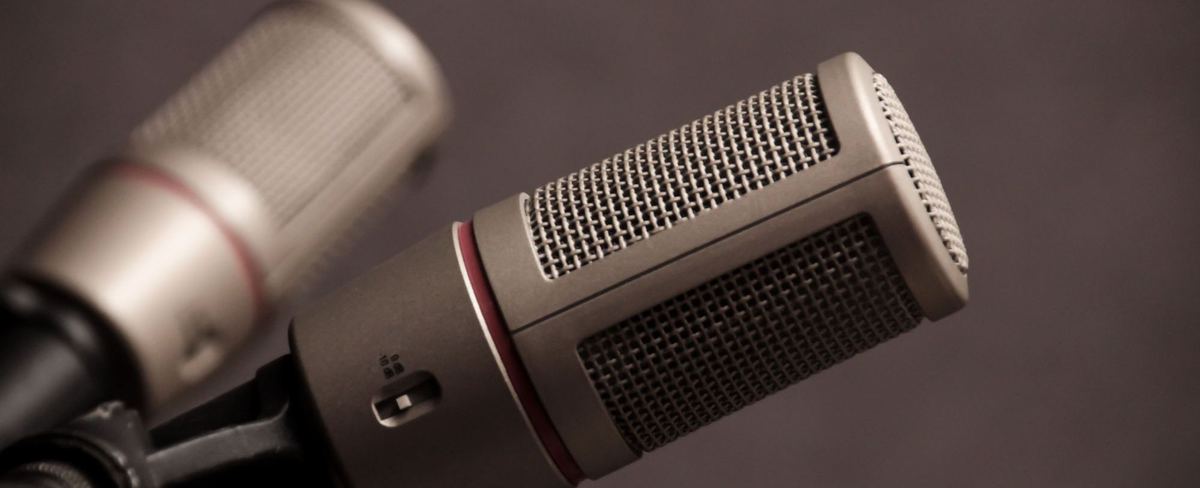Five Brain-Activating Podcasts
Friday, July 13, 2018

Photo by Gritte on Unsplash
Few undergraduate students at Berklee College of Music, where I teach, say they listen to podcasts. I am surprised to relearn this every time I bring it up in the classroom, but I shouldn’t be; Edison’s 2017 podcast consumer study indicates that only 7% of all monthly listeners are 17 years old or younger.
It surprises me nonetheless because, young musicians—like most of us—watch a lot of video, but they also carry headphones and take in aural information all day long.
Shouldn’t podcast listening be a part of their daily experience since it’s such a close neighbor to the activity of filling their ears with music?
One might think, but no. But I won’t let that stop me from using them in the classroom.
As someone who teaches writing, media, career preparation, and freshman seminar, I have realized that podcasts can be a helpful and dynamic way of introducing students to a range of ideas and educational exercises.
In addition, podcasts not only provide a nice alternative to the prime mix of lecture, discussion, and teacher-as-focal-point, they represent potential new, if smallish, revenue streams for the creative musician.
I’ll write more about the opportunity for musicians in a future post. My mission at the moment is to tell you about several podcast episodes that I have incorporated into my lesson plans and why they work so well.
“Musical Language”
(Radiolab)
Season 2, Episode 2 |April 21, 2006
In the 20-minute segment, “Behaves So Strangely,” that kicks off this episode, the hosts tease out ways that language, music, and science intersect. Professor Diana Deutsch, an expert in the psychology of music, demonstrates how speech can display melodic and rhythmic qualities.
The podcast’s producers and Deutsch demonstrate that a four-word phrase from a lecture, “…sometimes behaves so strangely…,” when looped over and over, begins to sound like song. There’s a moment in the audio segment when my students will laugh when they recognize what is happening.
Later in the episode, Deutsch discusses research supporting the idea that speakers of tone languages such as Vietnamese and Mandarin are more likely to possess perfect pitch.
There are always at least two benefits from playing this podcast in class. It is an audio version of an argument essay and stands as an example to writers how to present research supporting a thesis. Plus, it always gets young musicians debating the relative merits of perfect pitch. The ability to immediately recognize and identify the pitch of any sound does not guarantee that someone will become a great musician. Several of my students have done research and written argument essays relating to that idea.
“Derek Sivers on Developing Confidence, Finding Happiness, and Saying ‘No’ to Millions”
(Tim Ferriss Show)
Episode #125 | December 13, 2015
Tim Ferriss’s two-hour interview with musician and CDBaby founder Derek Sivers is full of useful advice for artists, entrepreneurs, and anyone else looking to make their lives purposeful and productive. Because Sivers graduated in 1990 from Berklee, the story he tells nine minutes into this podcast lands particularly well with my students, but could be inspirational for anyone looking to start a new venture.
When a bandmate announced a lack of interest in an upcoming solo gig—playing a pig show in Vermont—he asked if Sivers wanted it.
“Oh my God, a paying gig? Yes!” Sivers answers, eager to accept it even though the $75 would barely cover his bus fare.
Say “yes” to every offer you receive early in your career, Sivers says; you never know which one will open a door to some other, perhaps better, opportunity.
You can switch your strategy to “Hell, no!” (a fundamental Sivers philosophy) once you’ve established yourself.
“Weezer: ‘Summer Elaine and Drunk Dory”
(Song Exploder)
Episode #70 | April 18, 2016
Radiotopia’s Song Exploder podcast features artists and bands discussing how they write and record songs, with each episode focusing on one particular composition. Its eclectic roster of guests veers widely in terms of genre and fame, ranging from U2 and Bjork to Andra Day and DJ Shadow.
When host Hrishikesh Hirway interviewed Weezer frontman Rivers Cuomo about the making of “Summer Elaine and Drunk Dory,” listeners met a songwriter as devoted to creative exploration as he is to intricate organization strategies.
At the core of Cuomo’s process is an “array of spreadsheets that he uses to collect, analyze, and harvest his ideas.” He also talks about borrowing from classic chord progressions, using anagram generators, and “really embarrassing stuff” that ultimately leads to a final melody.
Fascinating for songwriters, Weezer fans, and anyone looking for innovative ways of focusing creative work.
"Debbie Millman: How to Design a Life"
(Tim Ferriss Show)
Episode #214 | January 12, 2017
During a long interview, designer, teacher, and podcaster (Design Matters) Debbie Millman talks about an assignment she gives her undergrad and graduate students requring them to imagine their future lives.
She reports that she and her students find it to be a magical and affirming experience and that, for many people, the ideas, images, and events they conjur up in their minds turn out to be true later on.
About 93 minutes into this conversation, Millman describes exactly how she conducts this exercise, framing it as a free writing assignment using a series of prompts about what one's life would look like five or ten years in the future.
Some members of my class resist this at first, thinking it a bit woo-woo. But by the end, reluctant students find it as useful as the ones who jump right in.
Debate: Legalize Assisted Suicide
(Intelligence Squared)
November 13, 2014
This debate show, also aired by NPR, offers great fodder for argument essay ideas and approaches. It positions experts on opposite side of an issue, topics ranging from sports to the environment.
The debaters present research-based evidence and articulate support and reasoning, just as students are required to do in persuasive essay writing.
In this particular episode, debaters include a philosopher, a doctor, and a bioethics professor, each modeling for students how to construct ideas and arguments.
The Intelligence Squared website is particularly useful; it polls listeners, provides research, and encourages an ongoing debate in the comments section, thus making the show both useful to students and to all of us, for who isn't getting into arguments about something these days?






